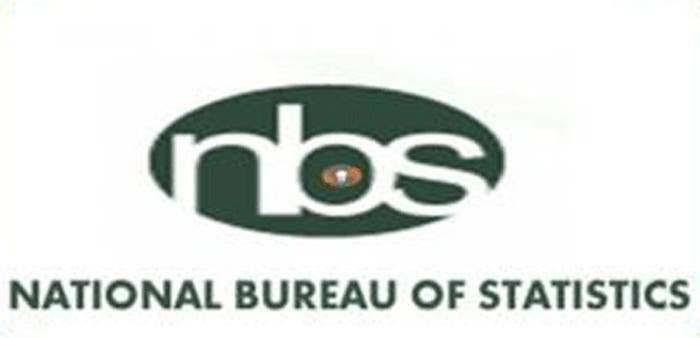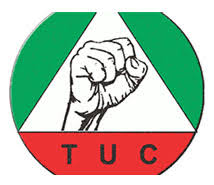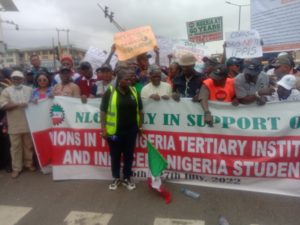GDP slim improvement, Not yet an Eldorado – OPS

The Organised Private Sector (OPS) yesterday expressed that the slim improvement of 0.5 of the GDP in the first quarter of 2021 cannot make the country to celebrate yet as many other aspects of the economy are still in limbo.
The Lagos State Chamber of Commerce and Industry (LCCI) said that there has been continued contraction of the trade sector which recorded a negative growth of 2.43%.
The LCCI Director General, Muda Yusuf said no doubt the OPS noted the marginal improvement in real GDP growth from 0.11% in fourth quarter of 2020 to 0.51% in first quarter of 2021, but stated that it has not really showed a big improvement on the economy.
He stated that trade sector has been grappling with headwinds arising from exchange rate depreciation and illiquidity, high inflationary pressures, and weak purchasing power.
“Yet the sector is one of the biggest sources of employment, especially in the self employment space,” he said.
Yusuf said evidently, the economy is still struggling to recover from the shocks of the pandemic and related slip into recession.
He said, “The GDP data contained a few pleasant surprises. The agricultural sector expanded by 2.28% despite the ravaging effects of insecurity, farmers herders clashes and the displacement of many farming communities.
“The recovery of manufacturing from a negative growth territory in Q4 2020 to a positive growth level of 3.4% in Q1 2021 was also a pleasant surprise. The sector has been grappling with an unprecedented foreign exchange illiquidity over the past few months.
This is coupled with the structural, policy, institutional and macroeconomic challenges. The data does not reflect the reality with most manufacturers.”
He however said that most foreign exchange dependent manufacturing sectors have not had a good experience in the past one year.
According to him, “Admittedly, segments of manufacturing with high levels of backward integration had lesser degree of shocks from the forex illiquidity in the economy.
“The growth of 6.31% recorded in the ICT sector is expected given the opportunities created for ICT in the new normal.
“The cost reflective tariff appears to have impacted positively on the electricity sector which recorded 8.66%. This was the highest sectoral growth performance in the GDP report. But a lot of issues remain to be resolved in the electricity sector.”
He added that equally worrisome is what is being experienced in the transportation sector with the worst contraction at 21.9% in the first quarter of 2021.
“This may be as a result of the growing insecurity on our roads. This goes to demonstrate the multidimensional impact of insecurity on the economy,” he stated further.
In the same vein, the Nigeria Employers Consultative Association (NECA) noted that though the country’s Gross Domestic Product (GDP) grew by 0.51% (year-on-year) in real terms, signaling a positive growth trajectory from Q4, 2020 growth pattern of 0.11%, however, the growth was lower than what the economy experienced same period in Q1, 2020 of 1.87% growth.
The Director General of NECA, Timothy Olawale said, “While we applaud the positive trend, nevertheless, it is not yet a time for celebration, as the growth pattern is still far below the population growth rate of over 3% per annum.
“There is need to intensify efforts and make more sectors (and sub-sectors) experience higher growth in subsequent quarters. This can be achieved by implementing more friendly investment driven policies, most especially in the manufacturing and telecommunication sector among others.”
Olawale said that the Oil sector contracted by 2.21% from -19.76% in Q4, 2020 and 5.06% in Q1, 2020, while the Non-Oil sector grew by 0.79% compared to 1.69% in Q4, 2020 and 1.55% in Q1, 2020.
“Noticeable sectors with positive growth includes Agriculture (2.28%), Manufacturing (3.4%), Electricity, Gas (8.66%), Water Supply, Waste Mgt. (14.8%), Construction (1.42%), and Telecommunications (7.69%),” he said.
The NECA Director General said the OPS called for policy rejuvenation in key sectors like Agriculture, Mining & Quarrying, Telecommunication, Manufacturing and Construction as several subsectors are witnessing declining growth.
Just like LCCI, the employers body charged the Federal Government to address the insecurity challenge, rising cost on transportation cost, low investment pattern, challenge in sourcing for foreign exchange and rising inflation which it noted will improve the performance of the sectors/sub-sectors. “We believe that the economy should end the year in a positive and higher growth trajectory, if the areas identified are giving adequate attention,” the Director General maintained.






